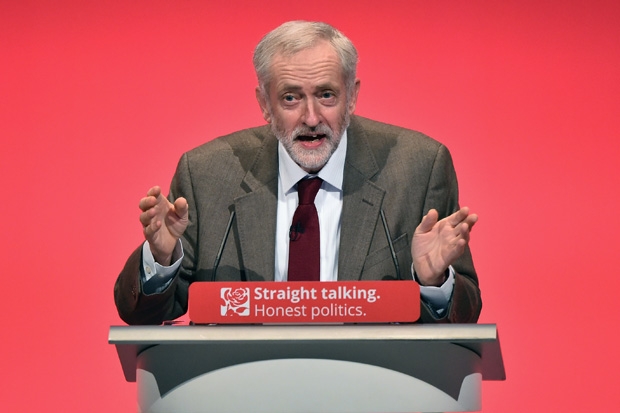One of my favourite things about Jeremy Corbyn, beyond the beard (I do like beards) and the way he was photographed in the Times the other day unabashedly wearing sandals with socks (spunky; no quarter given) is his embrace of dissent as a virtue. Which is a virtue born of necessity, obviously, on account of the way that there are only about six people in the Parliamentary Labour Party who don’t disagree with him on everything, and they’re not safe on telly, either. Still, though. I like it.
The doctrine of collective ministerial responsibility — the notion that everybody in a government thinks the same thing, and if one of them should ever admit that they don’t, then they have to go — doesn’t attract nearly the ridicule that it ought. It is, literally, a code of lying. Whatever Corbyn’s reasons for jettisoning it, he’s right to have done so.
The big question, though, is how he’ll cope without it. The Tories, of course, are still wobbling around over whether their ministers can have a free vote over the EU referendum, but that’s small beer compared to what Corbyn is trying to do. Or, at least, to what he pretends he is trying to do. It is true that the Conservative/Lib Dem coalition also used to suspend collective responsibility from time to time, albeit notably less often than you might have expected they would at the outset. But they had the inherent ability to agree to disagree without an implied moral slur on the other side. And I’m not at all sure that Corbyn has that.
Speaking to Andrew Marr last weekend, the new Labour leader was twinkling and sanguine about potential disagreements with his shadow cabinet. ‘I will do my persuasive best,’ he shrugged — about Trident, but it could have been about anything — ‘to bring them around to my point of view.’ Now, it may be that this belies a covert, rock-hard confidence in his powers of persuasion, although we did rather go to war in Iraq, didn’t we, so I’m not sure where he’d be getting that from. The alternative is that people are going to end up not agreeing with other people. And what I cannot get my head around is quite how that is going to work.
If he doesn’t persuade, on any particular policy, what will happen? ‘Leadership is about listening,’ he said in his conference speech. Even so, it is hard to believe that he would whip himself into following his party’s policy while disagreeing with it, not least because this is what he proved incapable of doing each of the 533 times he has voted against Labour since 1997. What are the alternatives, though? Would he vote against Labour while being in charge of it? That would also be strange. Stranger, even. Or, would he dictate policy, and expect his shadow ministers to support it, but also let them, on the margins, admit they’d rather not?
The last one seems most likely. Those who understand the inner workings of Labour, at least in the three or four minutes before they get too boring to listen to, suggest that the near future holds a great disenfranchisement of the parliamentary party. On they drone, these people, about the National Policy Forum, and the National Executive Committee, and the Conference Arrangements Committee, and I daresay I’ll eventually have to listen.
The point, though, is that while Corbyn’s support in Westminster is sparse, his mandate in the wider party is overwhelming. Those are the ones he wants to listen to. The ones he knows already agree with him. Or, to put it another way, when he speaks of compromise, he means for other people.
And I don’t really see how that’s going to work either. Say the policy is the benefit cap, and Labour is against it. ‘My party believes this is an immoral policy which will harm society’s poorest,’ says the minister. ‘But you don’t?’ says the bloke on Newsnight. ‘Me?’ says the minister, ‘God, no. I think they must be pissed or something. But I don’t see why that’s important.’ ‘So,’ the interviewer would say, ‘you also believe in an immoral policy which harms society’s poorest?’ To which the minister would have to shrug and say, ‘apparently’.
This is what happens when you abandon collective responsibility. You also need to abandon outrage, faux superiority, condemnation and the tacit implication that your opponents are bastards. And I do think it could be done. Just not by them.
Drilling down
As an environmentalist, I’ve no idea what I ought to think about oil. This week Shell announced it would be abandoning drilling off the coast of Alaska. Environmentalists are delighted. Only, should they be?
Environmentalists are delighted because a vast, untouched bit of Earth isn’t going to get oil rigs on it. OK. Except the reason it isn’t going to get oil rigs on it is that the oil price is so low that the maths no longer make sense to drill there.
Which means people can afford to buy and burn more of it. Which means alternatives to oil — renewables, batteries, electric cars — make less economic sense than ever before. Which means it will still happen, just later, and without the cleaner alternatives being invented in the interim. Which means you’re cheering, fellow environmentalists, about all the wrong things. Again.







Comments